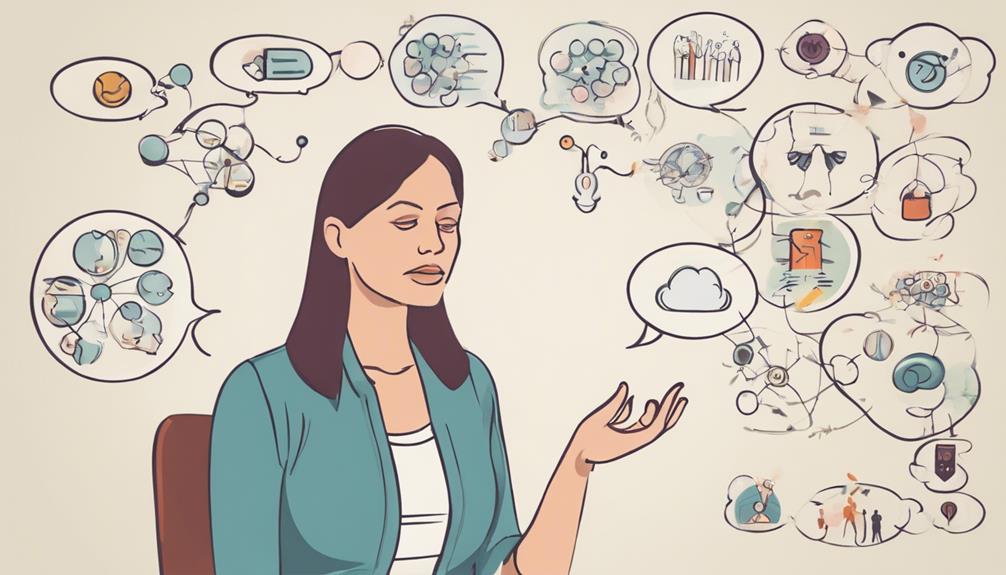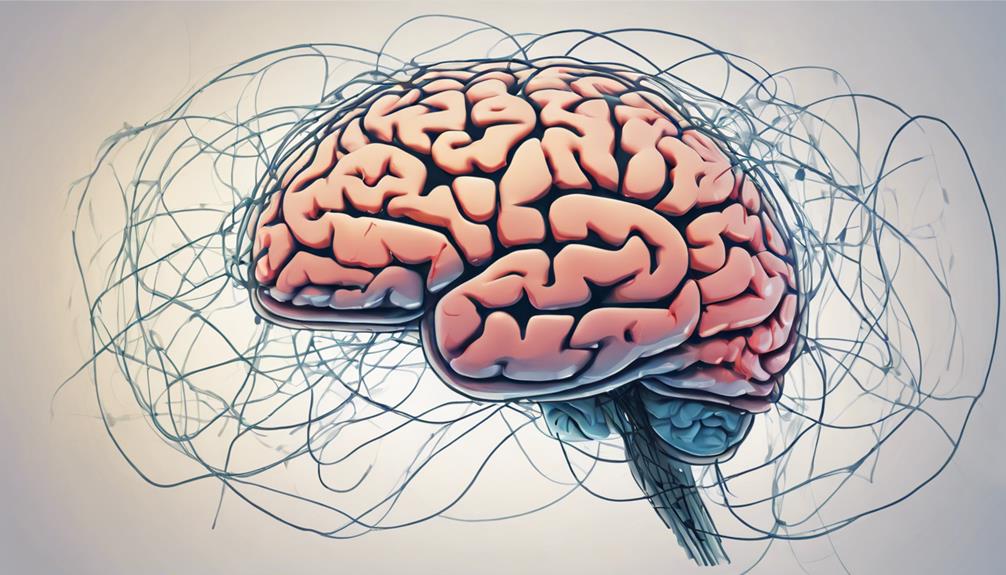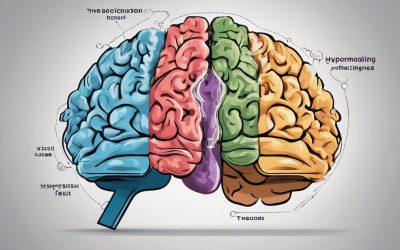web wind
self hypnosis

yoga
Hypnosis is a Pure tie-in to yoga to the fact It Will help you to achieve deeper levels of Comfort Throughout your yoga practice,

meditation
Meditation has been around for thousands of years, as has self-hypnosis, as a tool for deep relaxation, clearing the mind and achieving a state of inner peace.
Self Hypnosis for Self Healing
There are plenty of myths about hypnosis due to what we see on point, somebody eating an onion believing it is an apple, or blanking out and losing management.With self-hypnosis, you’re constantly. And you may use your brain to browse your own ideas and feelings and create results in your own life. Self Hypnosis provides you the resources to utilize engage your emotional power and energy up your daily life, health, success, and happiness.
one week free trial
HELLO! I’M BERIYA SATTA
about me
d.o.b
883 McDowell Street
Nashville, TN 37211
residence
883 McDowell Street
Nashville, TN 37211
specialities
Teaching Yoga and Hypnosis
Mindfulness to Young People
experience
HYPNOSIS INSTRUCTOR
883 McDowell Street
Nashville, TN 37211
MEDITATION GURU
883 McDowell Street
Nashville, TN 37211
YOGA INSTRUCTOR
883 McDowell Street
Nashville, TN 37211

JOIN US FOR A FREE 1-WEEK TRIAL
We are 100% sure that you will experience a better lifestyle with our courses.
happy customers

Merry Satta
Your Website is a valuable and comprehensive resource for Everybody but Particularly for Hypnotherapists, for Example, myself just starting out in this Excellent profession.

Jhone Smith
Fantastic support!!!! Thank you for the instantaneous (and informative!) help.

Beriya Satta
I wish to thank you for your warm welcome. I’m rather enthusiastic about this new find! I’m only about a year for a hypnotist and had been trying to branch out a little bit from weight reduction and smoking. This is an Excellent new start for me.
working hours
Monday – Friday8.00AM – 10.00PM
Saturday11.00AM – 10.00PM
SundayClosed
Latest Post
5 Ways Cognitive Theories Influence Hypnosis
Cognitive theories deeply influence hypnosis by integrating Cognitive Behavioral Therapy techniques to enhance therapeutic outcomes. Beliefs and expectations shape responses to hypnosis, closely linked to placebo effects. Language and suggestion techniques impact suggestibility and receptivity during interventions. Memory and vivid imagery aid in mental rehearsal for desired behaviors. Cognitive flexibility allows for reinterpretation of beliefs and behaviors, crucial for effective hypnotherapy. Understanding these five ways cognitive theories influence hypnosis provides insight into its multifaceted approach to behavior change and mental well-being.
Cognitive Behavioral Therapy Integration

The integration of cognitive behavioral therapy (CBT) with hypnosis has shown promising results in enhancing the effectiveness of therapeutic interventions for various psychological conditions. Research indicates that combining these two approaches can lead to improved client outcomes in the treatment of anxiety disorders, phobias, PTSD, and other mental health issues. By incorporating CBT techniques such as cognitive restructuring and behavioral interventions into hypnotherapeutic sessions, clinicians can address underlying cognitive distortions and maladaptive behaviors more effectively.
The clinical applications of integrating CBT with hypnosis are vast, offering a holistic approach that targets both cognitive processes and subconscious behaviors. This combined approach has been found to enhance therapeutic effectiveness by facilitating deeper levels of relaxation, increasing suggestibility, and promoting cognitive reframing during hypnotic states. These findings have important research implications, suggesting that the synergy between CBT and hypnosis holds promise for improving treatment outcomes across a range of psychological disorders.
Role of Beliefs and Expectations
Beliefs and expectations play a significant role in shaping the outcomes of hypnosis interventions, influencing the cognitive processes and behavioral responses of individuals undergoing hypnotic treatment. These factors are closely tied to the placebo effect, where a person's belief in the effectiveness of a treatment can lead to real improvements in their condition.
In the context of hypnosis, if a person believes that they will experience positive changes or relief from symptoms through hypnotherapy, they are more likely to respond positively to the intervention, even if the actual hypnotic suggestions are neutral.
Moreover, cognitive biases can also impact how individuals interpret and respond to hypnotic suggestions. For instance, confirmation bias may lead individuals to focus on information that confirms their preexisting beliefs about the effectiveness of hypnosis, enhancing the treatment's outcomes. Additionally, expectation bias can influence how individuals perceive the effects of hypnosis, potentially amplifying the benefits they experience.
Understanding and leveraging these cognitive processes are essential in optimizing the efficacy of hypnosis interventions.
Language and Suggestion Techniques

Research indicates that the language used in hypnosis and the specific suggestion techniques employed play a crucial role in influencing the effectiveness of hypnotic interventions.
Communication strategies and linguistic patterns are carefully crafted in hypnosis to induce a state of heightened suggestibility and receptivity to the hypnotic suggestions. The hypnotic language utilized is characterized by the use of authoritative yet soothing tones, repetition of key phrases, and the avoidance of negative language to bypass critical thinking and access the subconscious mind more effectively.
Moreover, suggestion delivery in hypnosis is tailored to the individual's responsiveness and suggestibility levels. Hypnotic suggestions are typically framed positively, focusing on desired outcomes and behaviors to encourage subconscious acceptance and integration.
Additionally, the pacing, tonality, and timing of suggestions are crucial in maximizing their impact on the individual's cognitive processes and behavioral responses.
Memory and Imagery Utilization
Utilizing vivid imagery and tapping into memory recall processes are fundamental aspects of enhancing the effectiveness of hypnotic interventions. Attentional focus plays a crucial role in guiding individuals to concentrate on specific mental images during hypnosis. By directing attention towards these images, hypnotic suggestions can be more deeply embedded in the individual's subconscious, increasing the likelihood of behavioral change.
Moreover, cognitive rehearsal within the context of hypnosis involves mentally practicing desired behaviors or responses. This technique leverages memory recall processes to simulate real-life scenarios and reinforce positive outcomes. Through repetitive mental rehearsal, individuals can strengthen neural pathways associated with the desired behaviors, making it more likely for these behaviors to manifest in their everyday lives.
Cognitive Flexibility and Reinterpretation

In the realm of hypnosis, cognitive flexibility plays a significant role in facilitating the reinterpretation of ingrained beliefs and behaviors. This process involves the modulation of attention and regulation of emotions to enable individuals to adapt their perspectives and responses to stimuli.
Attention modulation in hypnosis allows individuals to focus selectively on specific aspects of their experiences, which can aid in reframing negative beliefs or behaviors. By directing attention away from unhelpful thoughts and towards more constructive patterns, cognitive flexibility can be enhanced, enabling individuals to explore new ways of thinking and behaving.
Moreover, emotion regulation is crucial in the process of cognitive reinterpretation during hypnosis. Emotions are powerful influences on cognition, and by regulating emotional responses, individuals can better engage in the restructuring of their beliefs and behaviors. Through hypnosis, individuals can learn to manage emotional reactions associated with certain beliefs, thus creating space for new interpretations and perspectives to emerge.
Frequently Asked Questions
How Can Cognitive Theories Enhance Hypnotic Suggestibility?
Cognitive enhancement intertwines with suggestibility in hypnotic contexts. Psychological mechanisms underpin this synergy, shaping how cognitive theories mold suggestibility levels during hypnosis. Understanding these dynamics sheds light on the broader influence of cognitive theories in hypnotherapy.
Are There Any Potential Risks or Side Effects of Using Cognitive Theories in Hypnosis?
In exploring the potential risks and ethical concerns of using cognitive theories in hypnosis, it is crucial to consider side effects, misconceptions, and the impact on vulnerable populations. Understanding these aspects is vital in ensuring safe and effective practice.
Can Cognitive Theories Improve the Effectiveness of Hypnotherapy for Specific Phobias?
Utilizing cognitive theories in hypnotherapy can enhance the treatment of specific phobias by targeting the cognitive aspects of fear. This approach can improve the effectiveness of phobia treatment by addressing and modifying cognitive influences that contribute to fear responses.
What Role Do Cognitive Theories Play in Enhancing Hypnotic Suggestibility for Pain Management?
Cognitive theories play a pivotal role in enhancing hypnotic suggestibility for pain management by influencing cognitive processing. Understanding how thoughts and perceptions impact pain perception can improve suggestibility, leading to better pain control outcomes.
How Do Cognitive Theories Influence the Process of Hypnotic Regression Therapy?
In the process of hypnotic regression therapy, cognitive theories guide the exploration of past memories and emotions, facilitating memory reprocessing and emotional regulation. Understanding how thought patterns influence behavior is key to successful therapeutic outcomes.
Conclusion
In conclusion, cognitive theories play a significant role in shaping the practice of hypnosis. Through the integration of cognitive behavioral therapy, consideration of beliefs and expectations, utilization of language and suggestion techniques, incorporation of memory and imagery, and promotion of cognitive flexibility and reinterpretation, hypnosis can be a powerful tool for therapeutic intervention.
By understanding and applying cognitive principles, hypnotherapists can enhance the effectiveness of their work and help clients achieve positive outcomes.
Ensuring Ethical Standards in Hypnosis Practice
Ethical standards are vital in hypnosis practice, guiding professional conduct and client interactions. Prioritizing client autonomy and maintaining boundaries are key principles. Informed consent and confidentiality are foundational, fostering trust and mutual respect. Clear boundaries and professional relationships prevent ethical breaches. Practitioners must avoid false memories and misleading suggestions, ensuring therapy effectiveness. Continuing education and supervision are essential for growth and upholding ethical standards. Evidently, ethical practice in hypnosis is essential for client well-being and professional integrity.
Ethical Guidelines for Hypnotherapists

Ethical standards for hypnotherapists constitute a crucial framework that guides their professional conduct and interactions with clients. Within the therapeutic relationship, the concepts of client autonomy and therapist responsibility play a significant role.
Client autonomy emphasizes the importance of respecting the client's right to make their own decisions regarding their treatment and well-being. On the other hand, therapist responsibility underscores the obligation of the hypnotherapist to act in the best interest of the client, ensuring their safety and welfare throughout the therapeutic process.
Power dynamics within the therapeutic relationship also carry ethical implications for hypnotherapists. The inherent influence that hypnotherapists hold over clients due to the nature of hypnosis can create a vulnerable dynamic. It is the ethical responsibility of the hypnotherapist to maintain professional boundaries, avoid exploiting their position of power, and empower clients to make informed choices regarding their treatment.
Informed Consent and Confidentiality
The principles of informed consent and confidentiality are fundamental pillars in the ethical practice of hypnosis. Trust and communication play a crucial role in establishing a therapeutic relationship based on mutual respect between the hypnotherapist and the client.
Informed consent ensures that clients are fully aware of the nature of the hypnosis treatment, potential risks, benefits, and any alternative options available to them. This process empowers clients to make autonomous decisions about their care.
Confidentiality is essential to build and maintain trust. Hypnotherapists have a legal obligation to protect the privacy of their clients and keep all information disclosed during sessions confidential, except in cases where there is a clear risk of harm to the client or others.
Breaching confidentiality without proper consent can have serious consequences and may jeopardize the therapeutic relationship. Upholding these ethical standards fosters a safe and secure environment for clients to explore areas of personal growth and transformation within the bounds of professional practice.
Boundaries and Professional Relationships

Establishing clear boundaries and maintaining professional relationships are essential aspects of conducting ethical hypnosis practices. In the context of hypnotherapy, power dynamics play a significant role. Hypnotists hold a position of influence over their clients, highlighting the importance of setting boundaries to ensure that this power is not abused. By clearly defining the therapeutic relationship and the scope of the hypnotic process, practitioners can safeguard against potential ethical breaches.
Dual relationships, where a hypnotist takes on multiple roles with a client outside of the therapeutic setting, can blur boundaries and lead to conflicts of interest. It is crucial for hypnotists to maintain a clear distinction between their professional role and any personal connections to uphold the integrity of the therapeutic process.
Transference, the unconscious redirection of feelings from one person to another, can also impact the therapeutic relationship in hypnosis. Hypnotists must be vigilant in recognizing and managing transference to prevent it from interfering with the client's progress and the ethical conduct of the session.
Avoiding False Memories and Misleading Suggestions
Maintaining accuracy and reliability in hypnosis practice involves a commitment to avoiding the introduction of false memories and misleading suggestions. Memory manipulation within hypnosis can have a profound impact on therapeutic effectiveness. It is crucial for practitioners to exercise caution when suggesting or exploring past events with clients to prevent the unintentional creation of false memories.
Suggestion accuracy is paramount in ensuring client safety during hypnosis sessions. Providing suggestions that are clear, appropriate, and aligned with the client's goals can enhance the overall effectiveness of the therapy while minimizing the risk of inadvertently implanting misleading ideas.
Practitioners must continuously evaluate the language and content of their suggestions to guarantee that they are in the best interest of the client.
Continuing Education and Supervision

Engaging in ongoing continuing education and seeking supervision are essential components of professional development in the field of hypnosis practice. Hypnotherapists must adhere to supervision requirements to ensure the quality and ethical standards of their practice.
Supervision provides a structured framework for hypnotherapists to reflect on their work, receive feedback, and address any ethical concerns that may arise during client sessions. It also serves as a platform for continued learning and growth in the field.
Mentorship opportunities play a crucial role in the ongoing development of hypnotherapists. Working with experienced mentors allows practitioners to gain valuable insights, refine their skills, and navigate complex ethical dilemmas effectively.
Handling Ethical Dilemmas in Practice
Navigating ethical dilemmas in hypnosis practice requires a deep understanding of professional standards and a commitment to integrity in client interactions. Ethical decision-making plays a crucial role in addressing dilemmas that may arise during therapy sessions.
Hypnotists must prioritize client autonomy, ensuring that individuals have the right to make decisions about their treatment and are fully informed about the process. In handling ethical challenges, practitioners should consider case studies to enhance their understanding of complex situations and learn from past experiences.
Cultural considerations also play a significant role in ethical dilemmas within hypnosis practice. Practitioners must be aware of and respect the cultural beliefs and values of their clients to ensure that interventions are culturally sensitive and appropriate. By incorporating cultural competence into their practice, hypnotists can navigate ethical dilemmas more effectively and build trust with clients from diverse backgrounds.
Frequently Asked Questions
Can Hypnotherapy Be Used to Recover Repressed Memories?
Memory retrieval through hypnotherapy for recovering repressed memories remains controversial due to concerns about false memories. This controversy has significant therapeutic implications, necessitating caution and adherence to ethical standards when utilizing hypnosis for memory recovery.
How Can a Hypnotherapist Ensure Client Safety During Sessions?
To ensure client safety during hypnotherapy sessions, a hypnotherapist must prioritize informed consent, trust building, safety protocols, and boundaries establishment. These elements form the foundation for maintaining a secure and ethical therapeutic environment for clients.
Is It Possible to Be Hypnotized Against One's Will?
Hypnosis cannot be induced against one's will. Informed consent is crucial in hypnotherapy to establish ethical boundaries. Clients must willingly participate in the process, ensuring their autonomy and safety throughout the session.
What Measures Are in Place to Prevent Unethical Behavior in Hypnotherapy?
Professional boundaries and ethical guidelines serve as safeguards in hypnotherapy. Practitioners adhere to strict protocols to ensure informed consent and client empowerment, preventing unethical behavior. These measures uphold the integrity and trust within the therapeutic relationship.
Can Hypnosis Be Used to Manipulate or Control Someone's Actions?
Hypnosis, when used unethically, can potentially cross boundaries into manipulation and mind control. Practitioners must uphold ethical standards to ensure they influence clients positively and responsibly within the agreed-upon parameters of therapy.
Conclusion
In conclusion, ensuring ethical standards in hypnosis practice is essential for protecting the well-being and rights of clients. By adhering to ethical guidelines, including obtaining informed consent, maintaining confidentiality, setting appropriate boundaries, and avoiding false memories, hypnotherapists can build trust with their clients and uphold the integrity of the profession.
Continued education and supervision are also crucial for navigating ethical dilemmas that may arise in practice. Ultimately, ethical practice is a cornerstone of effective hypnotherapy.
Why Do Cognitive Theories Shape Hypnosis Outcomes?
Cognitive theories shape hypnosis outcomes through influencing expectations, beliefs, scripts, behavioral strategies, cognitive control, and restructuring techniques. These theories highlight the significance of cognitive processes in enhancing receptiveness, response, and therapeutic effectiveness during hypnotherapy sessions. Expectations, beliefs, and scripts set the framework for hypnotic experiences, while cognitive-behavioral approaches and restructuring techniques provide tools for positive change. Understanding the intricate interplay of cognitive factors in hypnosis can lead to optimized outcomes for individuals seeking hypnotherapy interventions.
Role of Expectations in Hypnosis

Expectations play a crucial role in shaping the outcomes of hypnosis sessions, influencing the individual's receptiveness and response to suggestions presented during the process. Expectation dynamics, rooted in cognitive biases, significantly impact how individuals experience hypnosis. Psychological preparation before a hypnosis session can prime individuals to be more open to suggestions, enhancing their cognitive processing during the session.
Research suggests that individuals with positive expectations of hypnosis are more likely to respond well to suggestions, while those with negative expectations may resist or have diminished responses. Cognitive biases, such as confirmation bias or the expectancy effect, can further reinforce the influence of expectations on hypnosis outcomes.
Individuals tend to interpret information in a way that confirms their preexisting beliefs, affecting how they perceive and react to suggestions given during hypnosis. Understanding the intricate interplay between expectations, cognitive biases, psychological preparation, and cognitive processing is essential for optimizing the efficacy of hypnosis interventions.
Influence of Beliefs on Suggestions
The beliefs held by individuals can significantly influence the extent to which suggestions presented during hypnosis are accepted and integrated into their cognitive processes. Belief impact plays a crucial role in determining the effectiveness of hypnotic suggestions.
Research suggests that individuals who hold strong beliefs in the power of hypnosis are more likely to respond positively to suggestions given during a session. These beliefs shape the individual's receptiveness to the hypnotic process and can influence the outcomes achieved.
Moreover, the influence of beliefs on suggestion acceptance is closely tied to cognitive processes. When individuals have preexisting beliefs that align with the suggestions given during hypnosis, they are more likely to incorporate these suggestions into their cognitive framework. This integration can lead to more profound hypnotic outcomes, as the individual is more receptive to the positive changes suggested during the session.
Understanding the impact of beliefs on suggestion influence is essential for maximizing the effectiveness of hypnosis in facilitating cognitive and behavioral changes.
Impact of Cognitive Scripts

An integral component of hypnosis outcomes is the impact of cognitive scripts on the receptivity and response to hypnotic suggestions. Cognitive scripts refer to the pre-existing mental frameworks individuals possess, influencing how they interpret and respond to information presented during hypnosis. These scripts are shaped by past experiences, beliefs, and expectations, impacting cognitive processing during hypnotic sessions.
Research indicates that individuals with cognitive scripts aligned with the therapeutic techniques used during hypnosis are more likely to exhibit positive responses. For instance, if a person holds a cognitive script that emphasizes relaxation and visualization as effective therapeutic tools, they may respond more favorably to suggestions that incorporate these techniques. On the contrary, conflicting cognitive scripts may hinder the effectiveness of hypnosis by creating cognitive dissonance and resistance to suggestions.
Understanding the impact of cognitive scripts allows hypnotherapists to tailor their approach to match individuals' existing cognitive frameworks, enhancing receptivity and optimizing therapeutic outcomes. By aligning hypnotic suggestions with individuals' cognitive scripts, practitioners can leverage these mental structures to facilitate positive changes and improvements in well-being.
Cognitive-Behavioral Approaches in Hypnosis
Utilizing cognitive-behavioral approaches within the context of hypnosis has been increasingly recognized as a strategic method to enhance therapeutic outcomes. Cognitive processing in hypnosis involves exploring and reshaping thought patterns, beliefs, and perceptions to facilitate positive change.
By combining cognitive restructuring techniques with hypnosis, individuals can address deep-seated beliefs or traumas that may be hindering their progress.
Behavioral modification strategies in hypnosis focus on changing maladaptive behaviors through suggestion, reinforcement, and visualization techniques. These approaches aim to replace negative behaviors with healthier alternatives, promoting sustainable change over time.
By incorporating behavioral modification into hypnosis sessions, individuals can develop new coping mechanisms and responses to challenging situations.
Research indicates that the integration of cognitive-behavioral approaches in hypnosis can lead to significant improvements in various conditions, including anxiety, phobias, and chronic pain.
The synergistic effect of addressing both cognitive and behavioral aspects can enhance the effectiveness of hypnotherapy and support long-lasting positive outcomes for individuals seeking therapeutic intervention.
Cognitive Control and Hypnotic Response

Cognitive control plays a crucial role in influencing the depth and efficacy of hypnotic response mechanisms. When individuals engage in hypnosis, their cognitive flexibility, or the ability to adapt cognitive strategies to changing situational demands, can impact their responsiveness to hypnotic suggestions.
Moreover, attentional focus, a key component of cognitive control, directs cognitive processing towards specific stimuli, influencing the individual's receptivity to hypnotic cues.
Research has shown that individuals with higher levels of cognitive flexibility tend to exhibit enhanced responsiveness to hypnotic suggestions, allowing for a more profound hypnotic experience. Additionally, the ability to maintain a heightened attentional focus during hypnosis can facilitate the integration of hypnotic suggestions into one's cognitive processes, further enhancing the effectiveness of the hypnotic intervention.
Therefore, understanding the role of cognitive control in shaping hypnotic responses highlights the importance of tailored approaches that consider individual differences in cognitive flexibility and attentional focus to optimize the outcomes of hypnotic interventions.
Cognitive Restructuring Techniques
Effective restructuring techniques aim to modify maladaptive cognitive patterns to promote more adaptive and functional thought processes. In the context of hypnosis, cognitive restructuring benefits individuals by helping them challenge and reframe negative beliefs, perceptions, and thought patterns.
By utilizing techniques such as cognitive reframing, individuals undergoing hypnosis can replace limiting beliefs with more empowering and positive alternatives, leading to improved psychological well-being and behavior change.
Hypnotic suggestion analysis plays a crucial role in cognitive restructuring during hypnosis sessions. Therapists carefully craft suggestions that target specific cognitive distortions or maladaptive thought patterns, guiding individuals towards recognizing and altering these patterns.
Through the use of tailored hypnotic suggestions, individuals can experience cognitive shifts that promote healthier cognitive functioning and emotional regulation. This process enables individuals to develop new perspectives, coping strategies, and problem-solving skills that support their overall mental health and well-being.
Frequently Asked Questions
Can Hypnosis Erase Traumatic Memories?
Hypnosis holds potential for memory modification, including addressing traumatic memories. Research suggests hypnotherapy can aid in memory reconsolidation and provide therapeutic benefits. However, individual responses vary, and further studies are needed to fully understand its effectiveness.
Do Cognitive Theories Explain Post-Hypnotic Suggestions?
Cognitive theories provide insights into how individuals process and respond to post-hypnotic suggestions. By examining cognitive scripts, researchers can understand the mechanisms behind the effectiveness of post-hypnotic suggestions and their impact on behavior and cognition.
How Do Cognitive Scripts Affect Hypnosis for Pain Relief?
Cognitive schemas play a pivotal role in pain perception during hypnosis for pain relief. By shaping individuals' emotional regulation processes, cognitive scripts influence the efficacy of hypnotic techniques, ultimately impacting the outcomes of pain management interventions.
Can Cognitive-Behavioral Therapy Enhance Hypnosis Effectiveness?
Exploring the mind-body connection, incorporating cognitive-behavioral therapy (CBT) into hypnosis can enhance effectiveness by promoting cognitive restructuring. This integration may lead to improved treatment outcomes, offering therapeutic benefits for various conditions.
Are There Risks of Losing Control During Hypnosis With Cognitive Approaches?
When considering hypnosis with cognitive approaches, the risk of losing control is minimal. Cognitive theories emphasize collaboration and empowerment, reducing the likelihood of memory erasure or unexpected outcomes. Properly conducted, hypnosis with cognitive techniques can be safe and effective.
Conclusion
In conclusion, cognitive theories play a significant role in shaping hypnosis outcomes through the influence of expectations, beliefs, cognitive scripts, cognitive-behavioral approaches, and cognitive control.
By understanding the cognitive processes involved in hypnosis, practitioners can tailor their interventions to enhance the effectiveness of hypnotherapy.
Further research in this area can provide valuable insights into how cognitive mechanisms contribute to the therapeutic benefits of hypnosis.
take any class at your free time
flexibly for whole month
address
883 McDowell Street, Nashville, TN 37211.
info@webwind.net
contact
1-931-320-8895



